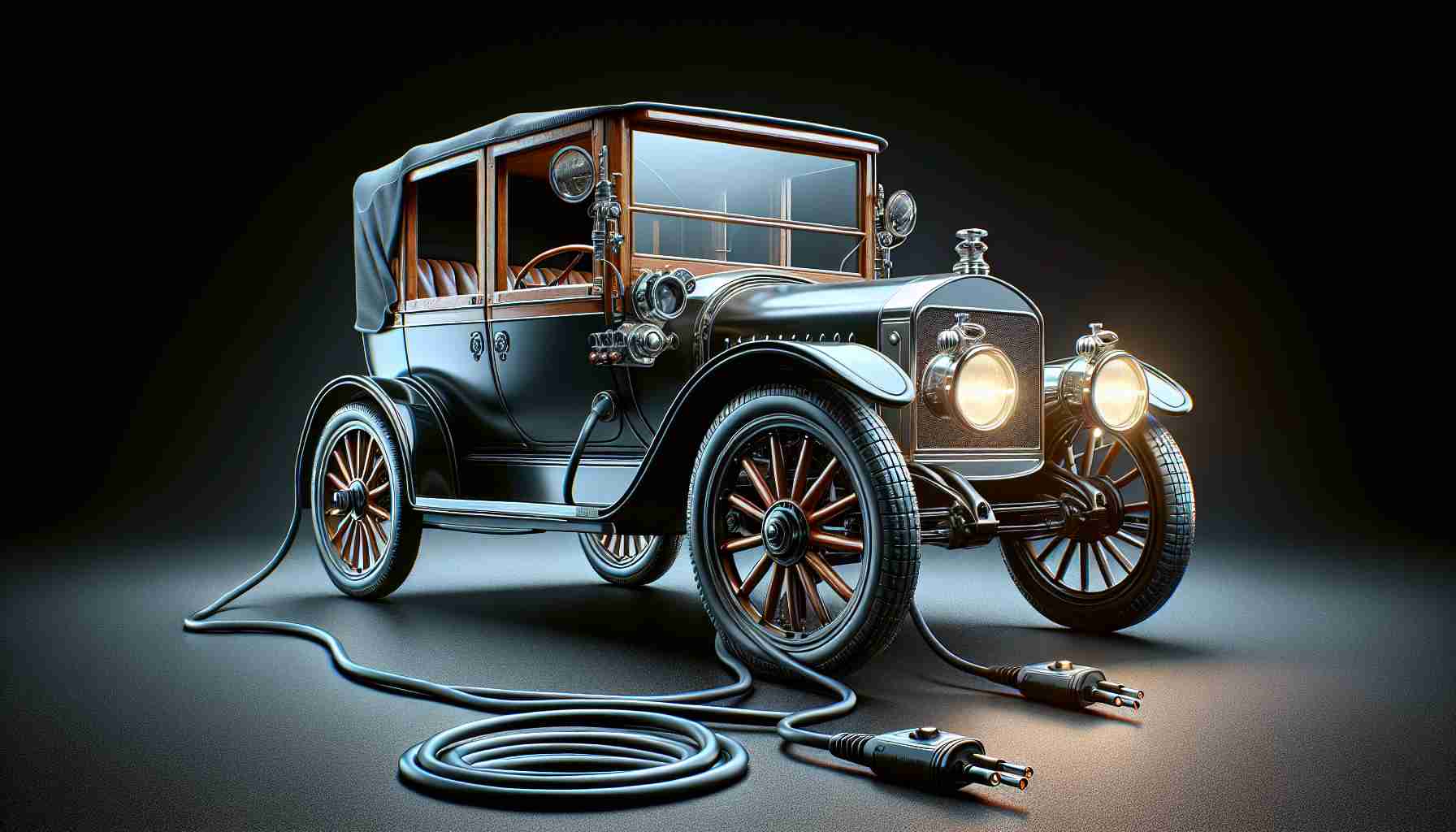A New Era for Charge Cars
In an exciting turn of events, Charge Cars, a British electric vehicle manufacturer, has made a remarkable return after facing bankruptcy just six months ago. This innovative company initially aimed to transform the cherished 1967 Ford Mustang into a sleek electric vehicle but struggled to finalize any models, leading to the unfortunate closure.
Following its collapse last July, which resulted in the dismissal of approximately 50 employees, Charge Cars has now been acquired by a group of private investors spearheaded by Paul Abercrombie, the new CEO. The company has relocated its headquarters to the iconic Silverstone, a renowned hub for British motorsport, signaling a fresh start for the team.
Under the new leadership, Charge Cars is eager to address the “significant challenges” that previously hindered its progress and fulfill the demand from eager customers. The company had originally received numerous orders, reflecting strong interest in its electrifying remake of the classic Mustang.
The ambitious plans include fitting the vehicle with a powerful 63 kWh battery, enabling lightning-fast acceleration and a competitive range. Although only 499 units were forecasted for production with a premium price tag of £350,000 each, the current management has yet to clarify if these figures have changed. Charge Cars is back in the game, hopeful that this revival will allow fans of classic cars to embrace a legendary model reborn in electric style.
Reimagining Classics: The Broader Impacts of Charge Cars’ Revival
The return of Charge Cars not only revitalizes a beloved classic vehicle but also underscores a significant shift in societal attitudes toward sustainability and modernity. The electric vehicle (EV) market has seen exponential growth, with projected sales expected to surpass 30 million units by 2030, fundamentally transforming the American automotive landscape. Charge Cars’ move to electrify the iconic Ford Mustang reflects a broader cultural embrace of sustainability that merges nostalgia with innovation, signaling to consumers that environmental considerations can coexist with luxury and performance.
However, the implications are not purely economic or cultural. The reliance on electric vehicle technology fosters a crucial discussion about the sustainability of lithium-ion batteries and their environmental impact. The extraction of materials such as lithium, cobalt, and nickel poses challenges, including ecosystem disruption and labor rights issues in mining regions. Addressing these concerns is vital for the industry as it seeks to scale sustainably.
Looking ahead, trends suggest that more manufacturers will explore retrofitting classic cars with electric drivetrains, further merging automotive history with future-forward thinking. As these initiatives gain traction, the long-term significance could reshape not only consumer preferences but also regulatory frameworks, promoting a greener economy that champions both innovation and heritage in the automotive sector. In this new era, Charge Cars stands as a beacon of hope for enthusiasts and environmental advocates alike.
Charge Cars Revitalizes Classic Muscle: The Comeback of an Electric Icon
A New Era for Charge Cars
Charge Cars, the British electric vehicle manufacturer known for its ambitious project to electrify the classic 1967 Ford Mustang, has made a surprising comeback after facing bankruptcy just six months ago. This resurgence not only marks a dramatic turnaround for the company but also signals a new chapter in the world of vintage electric vehicle conversions.
Features of the Revived Charge Cars Mustang
One of the key highlights of the revamped Charge Cars Mustang is its advanced electric drivetrain. The vehicle will be equipped with a robust 63 kWh battery, designed to deliver impressive power and efficiency. Here are some of the core features expected in the new models:
– Performance: With rapid acceleration and regenerative braking, the electric Mustang is anticipated to rival modern performance vehicles.
– Range: Although precise details on the range remain unconfirmed, the company aims to provide a competitive range that meets consumer expectations for electric vehicles.
– Custom Design: The iconic Mustang design will be thoughtfully adapted to incorporate modern electric vehicle technologies while maintaining its classic allure.
Pros and Cons of the Charge Cars Mustang
Pros:
– Classic Design: Retains the beloved aesthetics of the 1967 Mustang while upgrading to electric power.
– Sustainability: Supports the shift toward sustainable driving with an electric engine.
– Limited Edition: With only 499 units planned, it offers exclusivity and collectible value.
Cons:
– High Price Tag: Each unit is expected to cost around £350,000, which may limit accessibility for many potential buyers.
– Uncertainty in Production: The previous bankruptcy raises concerns about the company’s production capabilities and delivery timelines.
Market Insights and Trends
The revival of Charge Cars comes at a time when the demand for electric vehicles is surging globally. According to recent market analyses, the electric vehicle market is projected to grow significantly, with consumers increasingly seeking sustainable options that do not compromise on performance or style. Charge Cars’ focus on a classic model like the Mustang taps into a niche market of enthusiasts eager to embrace electric technology without losing the charm of vintage cars.
Security Aspects and Innovations
As the company transitions to its new headquarters in Silverstone—a historic site for motorsport—there’s an emphasis on incorporating the latest technology not only for performance but also for security. Electric vehicles often face unique challenges regarding cybersecurity, and Charge Cars aims to implement robust security measures to protect both the vehicle and user data.
Future Predictions
With the backing of private investors and a fresh management team, Charge Cars is well-positioned to make a significant impact in the electric vehicle market. Industry experts predict that if Charge Cars can successfully kick off production and deliver on its promises, it could herald a new wave of electric classic cars, bridging the gap between heritage and innovation.
For more updates on electric vehicle trends and innovations, visit Charge Cars.













